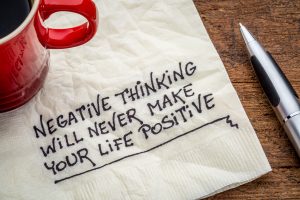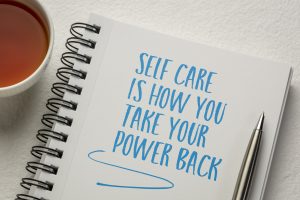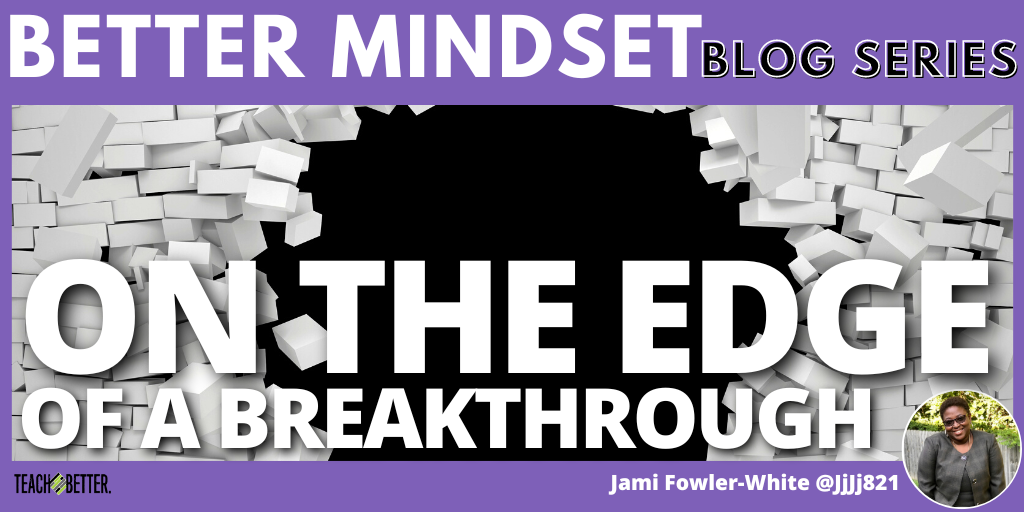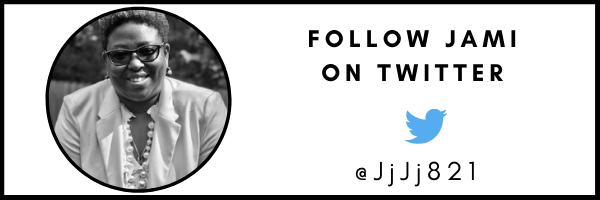TL;DR:
- Education professionals are experiencing stress and trauma due to pandemic-related challenges, leading to feelings of unworthiness and critical hopelessness.
- To address this, educators should focus on the positive impact they make beyond just numerical achievements, practice self-care, combat negative thoughts, and find support through dialogue with peers.
- Embracing change, staying connected, and celebrating small successes can lead to renewed hope and the ability to make a difference in the educational system.
Are you in a trance rooted in unworthiness?
For 180 days each year, you beat your head up against the wall as you push yourself beyond limits to reach success only to be forced to realize that your work is not valued. The cost to your family and health are put in jeopardy. You feel that you can no longer be triumphant in this vicious cycle of helping students climb out of the Pandemic Processing Pitfalls. You feel alone, find that you are no longer hopeful, and begin to think of what you can control. Ultimately, you find yourself questioning your choice of profession.

Photo Credit: Deposit Photos
- Should you stay or move on?
- How do you address this feeling of loneliness?
- What are you hopeful about?
You Are Making a Difference
I know you have felt it. We all have. You may not believe it, but your impact can be measured by more than just the numbers. Since we were little kids, we have been taught to be the best, shoot for the goal, and aim for the number one spot. This has embedded the need for us to always keep score. As we work to lift the educational system out of the COVID slump, I encourage you to look beyond the numbers.
Looking Beyond the Numbers
If we only look at the raw numbers, it may cause us to be stuck in a rut of unworthiness. This belief that no matter how hard we try, we will always fall short will corrupt our ability to keep a positive mindset. Our children, their families, you, and your colleagues have endured a type of trauma that cannot be overcome in less than two years.
Yes, the global pandemic is over. Now that it is, we can finally focus on overcoming the effects of nearly three years of trauma on ourselves and the secondary traumas we experience through others as we work to support and help them process their situations. As summer is upon us all, it is time for you to stop, examine, and reboot so you can once again achieve emotional homeostasis. Are there any cracks in your emotional foundation? How about the students in your classroom, school, and community? What coping skills have they been equipped with?

Photo Credit: Deposit Photos
Have you been emotionally traumatized?
Did you know trauma can occur at any time to any person? We often only think of traumatic experiences involving a threat to life or safety. However, any situation that leaves you feeling overwhelmed and alone can result in trauma, even if it does not result in a physical injury. Every person has their own perception of any event. Regardless of the objective or circumstance, it is your individual emotional experience that determines whether it is traumatic. If you have ever left a situation feeling frightened, helpless, or uncertain of what the future holds, then you were likely traumatized.
Fight or Flight: Our Children Need Support
When experiencing these feelings, I don’t know about you but I find it hard to concentrate on learning new things, retain less information, and cannot seem to fall asleep, all due to my brain always focusing on protecting me from the next trauma/stressor. So, I ask have you ever suffered from traumatic stress? Not only can we as adults not learn, concentrate, or function at our best in this fight-or-flight state, our students cannot either. If you ever wondered why students have difficulty remembering the skill/concept taught during the previous week, day, or month, consider stopping and talking to students about how you are feeling and coping with the stressors in your life. To do this you must be self-aware of your own emotions and their effects on your daily life. How often do you conduct an emotional self-check?
The Trauma of Critical Hope
In our profession, we are repeatedly undergoing our own and secondary traumas daily. Secondary trauma—also referred to as compassion fatigue, vicarious trauma, or secondary traumatic stress—occurs when someone is significantly impacted by someone else’s trauma. If left unchecked, it can lead to PTSD or burnout, a state of emotional, mental, and physical exhaustion. This mental and physical exhaustion often surfaces as “critical hope.” Critical hope is a concept that combines critical thinking and hope in a way that empowers individuals to take action to create positive change. It is defined as the ability to recognize and analyze social injustices while maintaining a sense of hope that change is possible. The effects of critical hope can be powerful, as it allows individuals to see beyond the current state of affairs and envision a better future.
Critical Hope
While it can be a tremendous source for moving forward, if you remain in this state for too long, this form of a fixed mindset trigger can begin to take a toll on your ability to maintain a positive mindset. So, what can you do to overcome critical hope and establish emotional equilibrium? There is no nobler cause than to help build our future. Whatever you do, don’t give up on our children. Educators are leaving the profession in record numbers. Why? As with most professions, people leave when they do not feel like they are doing something meaningful, positively impacting society, essentially making a difference.
Rest, recharge, and renew because YOU ARE ENOUGH and uniquely qualified to help us continue to break through the pitfalls of the global pandemic and stand in the trenches as we fight for the foundation of all professions…education. Click To TweetTangible Tasks
One strategy for combatting the effects of critical hopelessness is to focus on concrete actions that can be taken to make a difference. This may involve volunteering, donating to organizations that support causes you care about, or simply speaking out when you see injustices occurring. Teaching involves all of these things and so much more. You speak up for children and their families daily. You regularly volunteer your time and talents for the benefit of your school and community, often donating your time and money because creating a foundation for tomorrow is imperative.
Look for the Tangibles
Tangibles in our profession manifest in the smiling faces of our students, a hug or visit from a past scholar, or a word of thanks from a parent, just to name a few. Let these concrete signs guide your sense of purpose and accomplishment. Reframe your measurement of success and celebrate these small but mighty positive accomplishments.

Photo Credit: Deposit Photos
Positivity Is Critical
Surround yourself with positivity. Seek out optimistic people and environments that uplift and inspire you. Avoid negative influences and situations that bring you down. Engage in critical dialogue with others who share your concerns. Purposefully engage in collective care and cultivating compassion in your classroom and school. This can help to build a sense of community and shared purpose and can also lead to new insights and ideas for action.
Be Grateful for the Present
Are you routinely practicing gratitude? Take time each day to reflect on the things in your life that you are grateful for. This can be as simple as writing down three things each day that you appreciate. Remember to focus on the present. Instead of dwelling on the past or worrying about the future, try to focus on the present moment. Although we are all scrambling to find some sense of normalcy, our students and the educational system are still recovering. Learning gaps are not as wide but are ever-present and evident in our day-to-day processes. It will take us a little more time to fill in the cracks in our children’s academic foundation. We must remember that small successes lead to large achievements. Be grateful for the strides we have made and keep moving forward.
Challenge Negative Thoughts
Treat yourself with the same kindness and compassion that you would offer to a friend. Be gentle with yourself when you make mistakes and remember that perfection is not attainable. When negative thoughts arise, challenge them by examining the evidence and looking for alternative perspectives. One way that you can challenge negative thoughts is to practice mindfulness. Mindfulness meditation can be a helpful tool for staying centered in the present. This can help you reframe negative thoughts into more positive ones.
Goals and Successes: Take Care of YOU
Exercise is a great way to reduce negative thoughts. Are you taking care of your physical health? Eating a healthy diet, getting enough sleep, and engaging in regular exercise can all contribute to a more positive mindset. Consider aiming for a goal of engaging in physical activity at least three times per week. Along with taking care of yourself, be sure to set professional and personal goals. Working towards the achievement of goals can give you a sense of purpose and accomplishment. Don’t forget to celebrate your successes along the way.

Photo Credit: Deposit Photos
Self-Care Is Not Selfish
It’s important to remember that taking care of your own needs is not selfish, even in a time of crisis. Rather, it’s a necessity. After all, by allowing yourself to take breaks, leaning on others for support, and working in teams rather than alone for long periods, you’ll have the energy and fortitude to better help others in need.
Combat Loneliness Through Dialogue
Ultimately, critical hope is a powerful tool for creating positive change in the world. By combining critical thinking with a sense of hope, you will be able to see beyond the current state of affairs and envision a better future. By taking action, engaging in dialogue, and working to create positive change, we can all help to build a better world for ourselves and future generations. When the pandemic began and we were all quarantining in our houses, I was going stir-crazy. I missed the brief interactions that I had with other educators inside the buildings daily. I craved this connection.
Finding Your Peer Family
One morning an email popped into my send box. It invited me to join other administrators in a mastermind session. Since we were all stuck in the house, I said why not? I got dressed from the waist up and logged in. Little did I know that I would meet some of the best educators in the country. The Teach Better Administrator Mastermind challenged my thinking, helped me realize that all educators are going through the same things, and elevated me out of the critical hope funk. Engaging in regular activities and conversations with peers, friends, and family will improve emotional stability and help us maintain a positive mindset. Developing a positive mental attitude can help overcome challenges, reduce stress, and improve overall well-being.
[scroll down to keep reading]Don’t Give Up: You Are Enough
The highs and lows of inefficiency when looking at ourselves through the eyes of insecurity breeds personal suffering and burdens of not feeling good enough. Dwelling on the past or worrying about the future can lead to feelings of anxiety and hopelessness. Focus on the here and now. Stay connected to family, friends, and your school community. Self-care can help you feel more resilient and better able to cope with traumatic stressors as you continue to support children and their families.
A Breakthrough Is Coming
Take time to practice gratitude each day. Having a sense of purpose can help you stay motivated and hopeful. Lastly, remember you are valued. What you do daily matters. You are making a difference and are a critical part of our future.
Change can be difficult, but it can also bring new opportunities and growth. Embrace change and look for ways to adapt and thrive in uncertain times. Rest, recharge, and renew because YOU ARE ENOUGH and uniquely qualified to help us continue to break through the pitfalls of the global pandemic and stand in the trenches as we fight for the foundation of all professions…education. Big journeys begin with small steps. Take it one day at a time. Don’t give up. I believe in US! We’ve got this!
About Jami Fowler-White
Jami Fowler-White is the founder and CEO of Digital PD 4 You, LLC and co-creator of the Ignite Leadership Summit. Over the past two decades, she has served in many capacities in education which include ten years as a classroom teacher, ten years as an Instructional Coach, and a Core Advocate with Achieve the Core.
She currently mentors First-time and Renewal candidates for the National Board of Professional Teaching Standards and is a charter member of the National Board Network of Minoritized Educators and Black Women Education Leaders, Incorporated. Additionally, Mrs. Fowler-White is also a proud member of Delta Sigma Theta Sorority and is currently serving as a Principal in Shelby County Schools (TN).
Fowler-White also provides professional development under the umbrella of the National Board of Professional Teaching Standards and Digital PD 4 You for schools and districts. She is the author/coauthor of several books including, Educator Reflection Tips, Volume #1, EduMatch’s Snapshot in Education 2020: Remote Learning Edition, The Skin You are In: Colorism in the Black Community, 2nd Edition, and Educator Reflection Tips, Volume II: Refining our Practice. Jami blogs at DigitalPD4You.com , has a bi-monthly leadership blog on Insight Advance, and writes a monthly blog entitled the Better Mindset on TeachBetter.com. She invites you to connect with her on Twitter at @JjJj821 and on the Digital PD 4 You Facebook page.





